In Kentucky, the foreclosure process is an important part of understanding how to buy and sell a home. The timeline for foreclosure in the state is complex and can be difficult to navigate without knowledge of the laws.
It's important to understand the different stages involved in the foreclosure process, including when notices are sent out, when auctions take place, and when homeowners must complete all paperwork. Additionally, it's important to know what happens after a house has been foreclosed on, such as if there are options for buying back a home or what steps need to be taken if you're looking to purchase a property that has gone through foreclosure.
Knowing the details of each stage of the process will help you make informed decisions about your real estate investments.
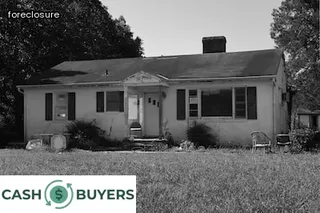
Understanding Kentucky Mortgage Loans is an important step in navigating the foreclosure timeline in Kentucky. Kentucky mortgage lenders are required to provide borrowers with a Notice of Default, which outlines their rights and responsibilities regarding the repayment of their loan.
Additionally, mortgagees must give notice to the borrower before initiating foreclosure proceedings. In order to avoid foreclosure, borrowers should work closely with their lender and make sure all payments are made on time.
Understanding the different types of mortgages available in Kentucky can help borrowers select the best option for their situation and ensure they do not fall into delinquency or default. It's also important to understand that foreclosure laws vary by state, so it is essential to research and understand all applicable regulations before signing any documents or making any payments.
By understanding the basics of Kentucky mortgage loans, borrowers can protect their financial interests and successfully navigate the foreclosure timeline in Kentucky.
When a mortgage payment is not made, the homeowner is at risk of entering foreclosure. Foreclosure is a legal process that allows the lender to take possession of the mortgaged property and sell it to pay off the outstanding debt.
The timeline for foreclosure in Kentucky can vary from case to case, but typically starts with the homeowner missing one or more payments. After missing a payment, the lender will contact the homeowner directly to try and arrange a repayment plan or work out an alternate solution.
If this does not happen, then the lender has the right to file a Notice of Default with the court, which begins the legal proceedings to reclaim their loan. Once this notice is filed, it initiates a timeline that can lead to an auction sale of the property if no agreement can be reached between both parties.
Understanding these steps and what they mean for homeowners is key in preventing foreclosure and protecting your home investment.
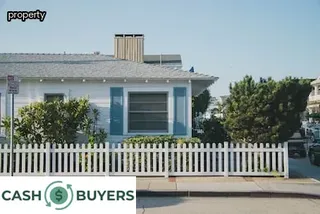
When a homeowner does not pay their mortgage in Kentucky, the foreclosure process begins. During preforeclosure, the lender sends a notice of default to the homeowner providing information about their right to reinstate the loan or take other actions.
Homeowners have several options at this stage, such as negotiating with the lender or selling the home. The foreclosure timeline in Kentucky requires lenders to record a Notice of Sale after they file a complaint in court; this generally occurs 30-45 days after the Notice of Default was sent.
Homeowners have rights during preforeclosure, including the right to challenge any errors on their loan documents and attend foreclosure sale hearings. They may also be eligible for state or federal assistance programs and can consult with an attorney if they need advice regarding their rights and options during preforeclosure.
A breach letter, also referred to as a ‘notice of default’, is an official document that serves as the first step in Kentucky’s foreclosure timeline. It is a formal notification sent to the borrower who has failed to make mortgage payments on their property and is in violation of their loan agreement.
The letter outlines the steps that must be taken by both parties in order for the home loan to remain in good standing. This includes how much money needs to be paid, how long they have before further steps are taken by their lender and other important details such as potential penalties if they fail to comply.
If no payment is made or agreement reached, then foreclosure proceedings can begin. Understanding when a breach letter will come into play is essential for anyone considering purchasing or selling a house or real estate in Kentucky so that they can ensure they are fully aware of all requirements related to their loan agreement.
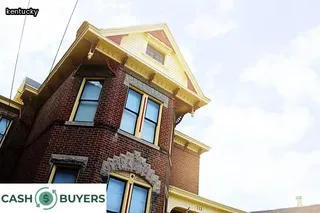
Foreclosure initiation in Kentucky is the first step of a long and complicated process that homeowners must go through if they are unable to repay their mortgage. This process can be intimidating and confusing, but understanding the timeline is essential for anyone considering buying or selling a foreclosed property in Kentucky.
The foreclosure timeline begins when a lender files a complaint with the court, which initiates the foreclosure action. From there, homeowners have 30 days to respond to an order of possession and 14 days after that to answer the foreclosure complaint.
If they fail to do so, a default judgment may be entered against them. Once this occurs, a notice of sale is issued by the court and published in an area newspaper for four consecutive weeks leading up to the actual sale date.
On that day, bids are accepted from buyers looking to purchase the house at auction. Afterward, if no bid is accepted, ownership reverts back to the lender who can then resell it on the open market or rent it out until it's sold.
It's important for buyers considering purchasing a foreclosed property in Kentucky to understand each step of this timeline before entering into any transaction.
In Kentucky, the process of foreclosure follows a judicial route, meaning that the lender must file a lawsuit against the homeowner in order to repossess their property. This process is usually initiated when payments become delinquent and the mortgage holder is unable to contact the homeowner or arrange repayment.
In order for a foreclosure to proceed, the court must approve it and provide legal notice for all parties involved. The required documents will depend on each individual situation but typically include proof of default on payments and details of any attempts at repayment made by either side.
Once all paperwork is complete, the court will issue a judgement allowing for repossession of the property which can be enforced within 90 days if necessary. It’s important to note that while this timeline may seem straightforward, lenders are legally obligated to provide homeowners with ample time to pay off their debt prior to taking action.
Furthermore, those facing foreclosure may be able to negotiate an alternative solution such as a loan modification or short sale with their lender in order to avoid losing their home.

Reinstating the loan before a foreclosure sale in Kentucky is possible for homeowners who want to keep their homes. In order to reinstate the loan, homeowners need to pay back the full amount of past due payments, late fees and any other related costs associated with the loan.
Homeowners should contact their lender or servicer as soon as they realize they can’t make a payment to get more details on reinstating the loan. It is important to note that in Kentucky, lenders are not obligated to offer homeowners a chance to reinstate their loans.
If offered this option, however, it must be done before the foreclosure sale begins. This time frame can vary depending on how quickly the lender processes paperwork but typically starts after 90 days of missed payments.
During this time period, homeowners will also receive multiple notices alerting them of an impending foreclosure sale and giving them information about how they can avoid it. Once a foreclosure sale occurs, it is much harder for a homeowner to save their home from being foreclosed upon.
Therefore, if given the opportunity it is best for homeowners to do what they can to reinstate the loan before the foreclosure sale takes place in Kentucky.
In Kentucky, the redemption period following a foreclosure sale is relatively short. After the house has been sold at auction, the homeowner has up to 60 days to redeem their property by paying what remains on their mortgage loan.
This includes all back payments due, as well as fees and costs associated with the foreclosure sale. Once this period ends, the new owner of the home can begin possession of the property.
If a homeowner wishes to remain in their home after the sale, they must make these payments before their redemption rights expire. With that said, understanding and navigating the foreclosure timeline in Kentucky is essential for those looking to purchase or retain a home in this state.

In Kentucky, a homeowner's property is subject to eviction after a foreclosure sale. As soon as the sale is complete, the homeowner must move out of the home or face legal action.
The sheriff will serve an eviction notice to the former homeowner, which outlines when they must vacate the property. Depending on local regulations, this may be as short as 24 hours or up to 30 days after the notice is served.
Homeowners in default should be aware that they are liable for any rent payments due until they officially leave and turn over keys to their former dwelling. If they fail to do so, they can face civil penalties and additional fees, and even criminal prosecution in some cases.
It's important that homeowners who are facing foreclosure understand all of their rights and responsibilities under Kentucky law in order to avoid any further complications during the eviction process.
For Kentucky homeowners facing foreclosure, there are several resources available to help them avoid or stop the process. A helpful first step is to contact a housing counseling agency that is trained and certified by the U.
Department of Housing and Urban Development (HUD) to provide advice on buying, renting, defaults, foreclosures, and credit issues. The Kentucky Housing Corporation offers free foreclosure prevention counseling to help homeowners understand the foreclosure timeline in Kentucky and develop a plan for avoiding or stopping it.
Homeowners may also be eligible for loan modifications through their lenders that permanently change the terms of their mortgage to make them more affordable. Additionally, Kentucky law allows for certain remedies such as forbearance agreements where lenders agree to temporarily suspend or reduce payments during financial hardship situations.
Finally, filing for bankruptcy can provide relief from creditor harassment as well as give homeowners time to work out a repayment plan with their lender.

When facing a foreclosure in Kentucky, it can be helpful to seek professional help from a KY Foreclosure Lawyer. A knowledgeable attorney can provide guidance on the foreclosure timeline and explain the consequences of missing payments.
An experienced lawyer will also be able to assess the legal rights of the homeowner and explore any potential options for avoiding foreclosure. If necessary, they can even represent the homeowner in court to protect their interests and negotiate with lenders.
Working with an experienced lawyer is important in order to ensure that homeowners understand the foreclosure process in Kentucky and make informed decisions regarding their housing situation.
Foreclosure in the state of Kentucky can take anywhere from a few weeks to several months, depending on the circumstances. The timeline for foreclosure usually starts with a missed mortgage payment, which then triggers a notice of default from the lender.
After that, there is typically a period of waiting while the borrower attempts to make payments and establish contact with their lender. If these attempts are unsuccessful, then foreclosure proceedings will begin.
The process of foreclosure involves formal legal notices and documents that must be filed in court. This process can take some time as the documents need to be reviewed and accepted by the court before any action is taken.
Once all necessary paperwork is completed, an auction is held where potential buyers can bid on the property. Finally, if no one bids on the property or if no other resolution has been achieved by this point, then it will result in a deed transfer back to the lender who initiated foreclosure proceedings.
This entire process can take anywhere from a few weeks to several months depending on how quickly all parties involved are able to move forward with each step in the process.
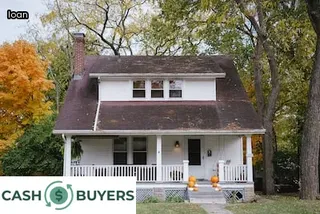
In Kentucky, foreclosures occur when the homeowner fails to pay their mortgage payments or another legal obligation related to their property. The process begins with the lender issuing a Notice of Default and Sale, which is then recorded and published in a newspaper or other public forum.
Once the notice has been filed, the homeowner has 30 days to cure the default or negotiate an agreement with the lender. If neither of these options are taken, then the lender can proceed with foreclosure proceedings.
The homeowner then has two more opportunities to avoid foreclosure: redemption and reinstatement. Redemption allows them to pay off all past due amounts at any point before the sale date of their property is finalized, while reinstatement requires that they pay all past due amounts plus fees by a certain date before the sale can be confirmed.
Ultimately, if neither of these options are pursued, then foreclosure will take place and ownership of the home will transfer to the lender.
A trustee plays a critical role in the foreclosure timeline in Kentucky. They are responsible for managing and executing the foreclosure process, which can take several months, depending on the particular situation.
The trustee is appointed by the lender to oversee the proceedings when a homeowner defaults on their mortgage payments. The trustee must make sure that all legal requirements are followed throughout the process and is responsible for handling any paperwork or other documents related to the foreclosure.
They also help ensure that all parties involved in the transaction understand their rights and obligations, including the homeowner, lender, servicer and other creditors. Additionally, they will work with local government agencies to make sure that any taxes or fees due are paid appropriately.
Lastly, trustees are responsible for conducting a public sale of the property once it has been foreclosed upon and ensuring that all proceeds from this sale go directly to the lender who initiated it.

In Kentucky, homeowners who are unable to secure a traditional mortgage loan have several alternatives to explore. One option is a reverse mortgage, which allows homeowners aged 62 and older to borrow against the value of their home and receive payments from the lender until the homeowner either moves or passes away.
Another alternative is an FHA loan, which can help those with lower credit scores secure financing through a government-backed program. A third option is a contract for deed, in which the seller finances the transaction instead of a traditional lender.
Homeowners may also consider an owner financing agreement, where the seller acts as a lender and provides buyers with more flexible terms than what they might find through a bank or other institution. Finally, potential buyers may be able to purchase foreclosed properties at discounted prices by taking part in auctions held by county court clerks or lenders.
Ultimately, it's important for homeowners to explore all options available before committing to any particular type of loan so they can find the best possible fit for their individual needs and situation.
When a home in Kentucky is sold through a foreclosure auction, the lender may still be owed money. In this case, the lender can pursue a deficiency judgment from the homeowner.
This means that the homeowner is responsible for paying back any remaining balance due to the lender after the foreclosure sale has been completed. A deficiency judgment can be issued if it is determined that the sale price of the home was lower than what was owed on it.
If a deficiency judgment is issued, then this creates an additional financial obligation for the homeowner to pay back what was not covered by the foreclosure sale. Depending on where you live in Kentucky, debt collectors may have up to 20 years in order to collect on a deficiency judgment.
Additionally, they are allowed to garnish wages or place liens on other properties owned by the borrower in order to recover the remaining amount due. It is therefore important for homeowners facing foreclosure to understand how their state's laws apply and take steps to protect themselves from further financial hardship after a foreclosure sale has taken place.

When facing a mortgage default in Kentucky, it is important to understand the tax implications of such an event. Property taxes may still be due even after a home is foreclosed upon and there may be additional penalties associated with failing to pay them.
Additionally, capital gains taxes may be applicable if the property was sold or not paid off within a certain amount of time. The IRS also has certain rules regarding debt cancellation as part of a foreclosure process and homeowners should keep track of any documents that might prove that the debt was canceled in order to save money on taxes down the road.
Lastly, there can be state-level taxation applied when dealing with foreclosure in Kentucky so homeowners should consult their financial advisors for specific guidance about how to file their taxes properly.
When a homebuyer defaults on their mortgage in Kentucky, it can have a significant impact on their credit score. Credit reporting agencies take into account the amount of debt owed and how delinquent payments are when calculating a person's credit score.
A mortgage default in Kentucky can lower an individual's credit score by up to 200 points, making it difficult to secure future financing for big purchases such as cars or homes. It is important for individuals facing foreclosure in Kentucky to understand the timeline and consequences of their actions so they can make informed decisions about their financial future.
Working with a qualified financial advisor or real estate attorney can help individuals protect their credit score while navigating through the foreclosure process. Keeping up with payments, understanding loan modification options and being aware of foreclosure timelines are all critical steps that should be taken if facing foreclosure in Kentucky.

Bankruptcy is a viable option for those dealing with mortgage debt in Kentucky. It can be an effective way to avoid foreclosure and help homeowners keep their homes.
The process of filing for bankruptcy is complex, and it's important to have the right guidance to ensure that the process goes smoothly. In order to understand the foreclosure timeline in Kentucky and how bankruptcy may affect it, it's important to understand how mortgage debt works and what happens when a homeowner defaults on their loan.
Bankruptcy can provide relief from overwhelming debt by allowing individuals to discharge certain debts, such as medical bills or credit card debt, while others, such as mortgages, may be restructured so that payments are more manageable. Additionally, if a person has already lost their home due to foreclosure, filing for bankruptcy may help them rebuild their credit so they can purchase another home in the future.
Understanding how bankruptcy affects mortgage debt in Kentucky can give homeowners a better chance at avoiding foreclosure and keeping their homes.
In Kentucky, the foreclosure process typically lasts between 60 and 90 days. The first step is for the lender to file a Complaint of Foreclosure with the court.
At this point, they must also provide notice to the homeowner of their intent to foreclose. Once the Complaint is filed, it must be served on the homeowner by a process server or sheriff.
After service has been completed, the homeowner will have 20 days to respond in writing to the Complaint. If they fail to do so, then a default judgment will be entered against them in favor of the lender.
Following that, the lender will then file a Motion for Order of Sale with the court and provide notice to both parties of its intent to sell the property at a public auction. On the day of sale, if no bids are received from third-party buyers, then the lender may purchase it back for its own benefit.
Once purchased by another buyer or returned to its original owner, title is officially transferred and foreclosure proceedings are complete.
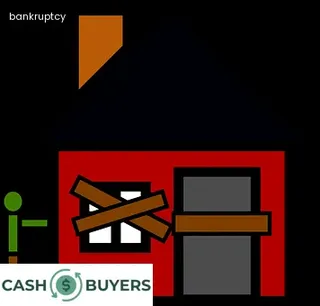
If you are facing foreclosure in Kentucky, it is important to understand and take action as soon as possible to stop the foreclosure process. In order to understand the foreclosure timeline in Kentucky, it is essential to first understand what a foreclosure is and how it works.
A foreclosure is when a lender takes legal action to seize or repossess a house due to an owner’s failure to pay their mortgage on time. Once a homeowner misses three consecutive monthly payments, they enter pre-foreclosure, which typically gives them 30-90 days before the lender can officially start the foreclosure process.
During this time, homeowners should consider reaching out to their lender and exploring options such as loan modifications that could help them keep their home. Other solutions may include refinancing or selling the property before it goes into foreclosure.
Additionally, homeowners may be able to work with housing counselors or legal aid organizations who can provide additional resources and advice. Ultimately, stopping a foreclosure depends on the individual’s financial situation and available options; however, taking action early is key for preventing further complications and ensuring you have enough time to explore all of your options.
Foreclosure is a major problem in Kentucky, and understanding the timeline is essential for homeowners who are facing potential foreclosure. In Kentucky, homeowners can go into foreclosure if they are two or more months behind on their mortgage payments.
Once a homeowner falls two months behind on their mortgage payments, they receive a notice of default from their lender. The homeowner then has 30 days to make up the delinquent payments or face foreclosure proceedings.
If the homeowner fails to make up the delinquent payments within the 30-day period, the lender may begin foreclosure proceedings and initiate a legal action against the homeowner. Foreclosure usually takes about four to eight months from start to finish depending on various factors such as loan type, court backlogs, etc.
Knowing how many months behind you must be before you go into foreclosure in Kentucky is key to avoiding this situation altogether and saving your home from being foreclosed upon.
The purchaser of a Kentucky foreclosed property can take possession as soon as the foreclosure process is complete and the title has been transferred to the new owner. The foreclosure timeline in Kentucky typically takes anywhere from 2-6 months, depending on the complexity of the case.
During that time, the homeowner has an opportunity to cure their debt and reinstate their loan or work out a repayment plan with the lender. If they are unable to do so, then the lender will initiate a foreclosure action.
Once the court awards judgment in favor of the lender, they will proceed with selling off the property in an auction or by private sale. After that is completed, possession of the property is granted to the new owner who purchased it at auction or through private sale.
Understanding this timeline can help potential buyers plan for when they can gain access to a Kentucky foreclosed property and begin making any necessary renovations.